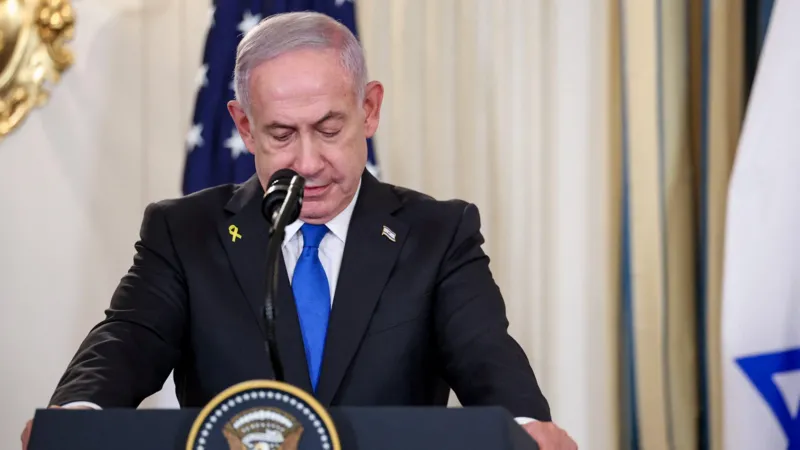Israeli Prime Minister Benjamin Netanyahu appeared subdued on Monday during a White House appearance with U.S. President Donald Trump, following a new Gaza peace agreement. While praising Trump as “the greatest friend Israel has ever had in the White House,” Netanyahu’s energy and tone suggested political strain.
The agreement, brokered by Trump, includes provisions for Palestinian involvement in Gaza and lays a potential pathway toward a Palestinian state, though with heavy caveats. The deal has sparked tensions within Netanyahu’s far-right coalition, where members like Bezalel Smotrich and Itamar Ben-Gvir have advocated for annexing Gaza and expanding Jewish settlements.
Netanyahu faces the risk of losing his government if coalition partners withdraw support over concessions in the peace deal. Trump’s plan offers the Israeli leader a historic regional legacy but potentially at the cost of his political career.
Israel’s President Isaac Herzog has indicated he may pardon Netanyahu in ongoing corruption trials, which critics argue have influenced the prime minister’s reluctance to step down. Despite the agreement, Netanyahu publicly denied consenting to a Palestinian state, emphasizing Israel’s continued resistance.
Reports suggest Israel’s cabinet will vote only on the exchange of hostages for Palestinian prisoners, rather than the full peace deal. This limited approval appears aimed at balancing internal political pressures while moving forward with negotiations.
Netanyahu’s statements in Washington underscored that Israel reserves the right to “finish the job” if Hamas fails to comply, reflecting his ongoing focus on military objectives alongside diplomatic measures.
The prime minister has historically navigated negotiations with strategic caution, often backing out of permanent agreements after achieving tactical advantages. Analysts suggest he may be waiting to gauge Hamas’s response before fully committing.
Observers note that Netanyahu’s public concessions challenge his long-standing image of demanding “total victory” over Hamas, highlighting the political tightrope he must walk between domestic coalition pressures and international expectations.
For the first time since the conflict escalated, Netanyahu appears to be weighing the political cost of resisting versus accepting a negotiated agreement, highlighting the complex dynamics between U.S. influence and internal Israeli politics.
Trump’s intervention contrasts with prior U.S. administrations, with the president positioning himself as a key mediator in a conflict that has drawn global attention and scrutiny.

